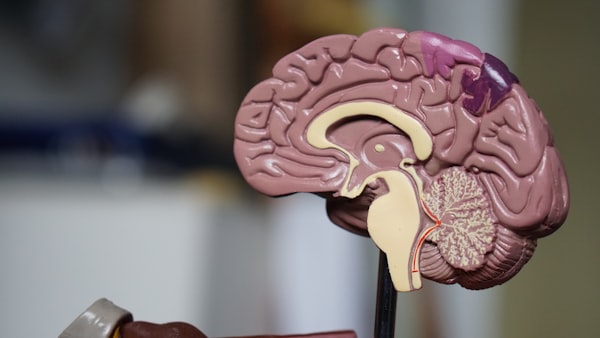突然心口疼是一種常見的癥狀,許多人可能會在生活中間歇性經歷。它可能源于多種原因,從輕微的肌肉拉傷到嚴重的心臟問題。了解突然心口疼的背后原因、癥狀表現以及正確的應對方法,對于維護健康至關重要。本文將深入探討這一主題,提供實用的信息,幫助您更好地識別和處理心口疼的情況。
突然心口疼的可能原因
突然心口疼的原因復雜多樣,涉及多個身體系統。心臟相關問題是首要考慮因素,例如心絞痛或心肌梗死,這些狀況通常由冠狀動脈疾病引起,導致心臟供血不足,表現為胸部壓迫感或疼痛。肌肉骨骼問題也很常見,比如肋軟骨炎或胸肌拉傷,往往與過度運動、不良姿勢或外傷有關,疼痛通常是局部性的,運動時加重。消化系統異常,如胃食管反流病(GERD)或食管痙攣,可能導致心口灼熱感或疼痛,尤其在進食后或平躺時明顯。心理因素如焦慮癥或恐慌發作,可以引發心口疼,伴隨心悸、出汗等癥狀,這是由于自主神經系統激活所致。其他原因包括呼吸系統疾病如肺炎或胸膜炎,以及較少見的狀況如主動脈夾層,后者是醫療緊急情況。識別這些原因需要結合個人病史和癥狀特點,建議在出現心口疼時及時就醫以獲取準確診斷。

心口疼的常見癥狀和表現
心口疼的癥狀因 underlying cause 而異,但通常包括胸部不適、疼痛或壓力感。心臟相關心口疼 often described as squeezing, crushing, or radiating pain that may spread to the left arm, neck, jaw, or back, and can be triggered by physical exertion or stress. 這種疼痛可能伴隨 shortness of breath, nausea, sweating, or dizziness, indicating a potential heart attack. 肌肉骨骼性心口疼通常是 sharp or aching, localized to a specific area, and worsened by movement or palpation. 消化系統引起的心口疼可能 feel like burning or indigestion, often after meals or when lying down, and might be relieved by antacids. 焦慮相關心口疼 can be vague and fluctuating, with additional symptoms like palpitations, trembling, or a sense of impending doom. 重要的是,癥狀的持續時間、 intensity, and associated factors can help differentiate between benign and serious conditions. 例如,短暫、 mild pain that resolves quickly might be due to muscle strain, whereas persistent, severe pain requires immediate medical attention.
如何應對和處理突然心口疼
當突然出現心口疼時,采取正確的步驟至關重要。首先,保持 calm 并停止任何活動, sit or lie down in a comfortable position to reduce strain. 如果疼痛嚴重、持續不緩解,或伴有其他 warning signs such as difficulty breathing, fainting, or pain radiating to other areas, immediately call for emergency medical help or go to the nearest hospital, as this could indicate a life-threatening condition like a heart attack. 對于 milder cases, try to identify potential triggers, such as recent physical activity or dietary habits, and avoid them if possible. Over-the-counter pain relievers like ibuprofen may help for muscle-related pain, but consult a doctor before use, especially if you have underlying health issues. 長期管理 involves addressing the root cause: for heart health, adopt a heart-healthy lifestyle with regular exercise, a balanced diet low in saturated fats, and stress management techniques. 如果心口疼 recurrent, keep a symptom diary to track patterns and discuss with a healthcare provider for personalized advice. 記住, self-diagnosis can be risky; always seek professional medical evaluation to rule out serious problems.

預防心口疼的有效方法
預防心口疼 focuses on maintaining overall health and reducing risk factors. 對于心臟健康, engage in regular moderate exercise, such as brisk walking or swimming, for at least 150 minutes per week, as recommended by health guidelines, to improve cardiovascular fitness and reduce the likelihood of heart-related issues. 飲食方面, emphasize a diet rich in fruits, vegetables, whole grains, and lean proteins, while limiting processed foods, salt, and unhealthy fats to manage weight and blood pressure. stress management is key; practice relaxation techniques like deep breathing, meditation, or yoga to lower anxiety levels and prevent psychosomatic symptoms. 避免吸煙和 excessive alcohol consumption, as these can exacerbate heart and digestive problems. 定期進行 health check-ups, especially if you have a family history of heart disease or other risk factors, to monitor cholesterol, blood pressure, and other indicators. 對于肌肉骨骼預防, maintain good posture, stretch regularly, and avoid overexertion during physical activities. 通過 these proactive measures, you can significantly reduce the occurrence of sudden chest pain and promote long-term well-being.
結論
突然心口疼是一個多因素癥狀,可能反映從簡單到嚴重的健康問題。通過了解可能的原因、識別癥狀特點,并采取適當的應對和預防策略,您可以更好地管理自己的健康。始終優先咨詢醫療專業人士,以獲得準確的診斷和 tailored treatment. 保持健康的生活方式是減少心口疼風險的最佳途徑,記住, early intervention can save lives in cases of cardiac emergencies.
